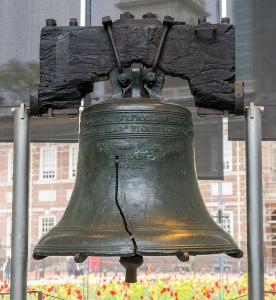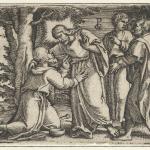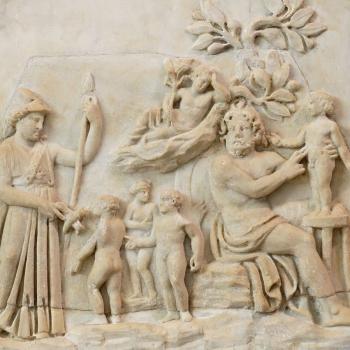
True freedom or liberty is not easy to achieve. It is a work in progress. On this Fourth of July weekend, I reflect upon the importance of not taking freedom for granted and working hard to attain it nationally and interpersonally.
Let’s start with our nation’s longstanding pursuit of democratic freedom. In his Gettysburg address, President Abraham Lincoln sought to honor the fallen on both sides of the conflict in the Civil War:
“It is for us the living, rather, to be dedicated here to the unfinished work which they who fought here have thus far so nobly advanced. It is rather for us to be here dedicated to the great task remaining before us — that from these honored dead we take increased devotion to that cause for which they gave the last full measure of devotion — that we here highly resolve that these dead shall not have died in vain — that this nation, under God, shall have a new birth of freedom — and that government of the people, by the people, for the people, shall not perish from the earth.”
No doubt, President Lincoln believed democratic freedom was a work in progress. It was and is by no means easy to put in place and preserve a government of the people, by the people, and for the people. The battle continues today. Tyranny of the autocrat or elite few using the general populace for their own ambitions stands at the one extreme. The cacophony of countless citizens living only for themselves stands at the other extreme. Both trajectories wage war on democratic principles. Democracy is a work in progress.
Historian John Hope Franklin spoke to the matter of democracy being a work in progress in his lecture at the Library of Congress in 2006. Franklin defined democracy as “a government where power is directly exercised by the people—all of whom enjoy social, economic and political equality.” He argued it was ironic how the U.S. uses military force to enforce democracy across the globe. He claimed that this country should practice the democratic ideals that it preaches before imposing them on other countries.
With this point in mind, some might argue that Lincoln’s use of force to bring the south into alignment with the north’s will was itself a contradiction in democratic terms. But then again, the enslavement of other human beings was itself a denial of democracy regardless of the debate over the federal government’s sovereignty versus individual states’ rights. The freedom of some at the expense of others’ social, economic and political liberty is not democratic.
Freedom is worth fighting for, but how should we fight? Both sides in the Civil War sought to exercise and safeguard freedom as they envisioned it. Was either of the two sides truly successful in the conflict? How successful is our fight for freedom as a country today?
John Hope Franklin argued that democracy in the U.S. is still a work in progress: “It has taken us more than 200 years to arrive at this infantile stage of democracy.” At the conclusion of his address, he said:
“I hope the U.S., having experienced or witnessed numerous holocausts in the past century, can get through the next century with a peace that surpasses all human understanding. I hope it can show the world that while there may be something great about winning a war, there is something much greater about learning to use the tools of peacemaking to build a better, democratic world—one great human family.”
It’s not just democracy in the U.S. that’s a work in progress. Each of us is a work in progress. Personal freedom, as I see it, involves exercising human agency, not over against others, but in harmonious relationship with others. From a biblical standpoint, it involves adherence to the great commandments that Jesus summed up: loving God with all our hearts, souls, minds, and strength, and loving our neighbors as ourselves (Mark 12:30-31). This is a very tall order. I am still a work in progress in seeking to live into the freedom Jesus envisioned for all of us!
Freedom involving human agency includes growing to exercise one’s physiological, neurological, and emotional capacities effectively. Here I bring the subject matter close to home in its bearing on my adult son Christopher, who endured a catastrophic brain injury in January 2021. I firmly believe that Christopher is frustrated at times by his limitations in expressing his wishes and desires and exercising his agency. For instance, I have often wondered if he wishes to move an arm, hand, and finger to scratch his back or nose but can’t. If I knew where he itched, I would do it for him! However, Christopher has until now only spoken a few words in the presence of others.
While Christopher has not spoken recently, as far as I know, I was greatly encouraged this past week when a CNA told us that Christopher moved his arm to his face and scratched his nose several times one night. The CNA reenacted the motion. It immediately reminded us of the distinctive way Christopher used to scratch his nose (Don’t worry: I trained my son when he was quite young never to pick his nose; he always scratched the outside of his nose with a partially closed fist). Christopher’s CNA then provided enthusiastic and empathic commentary: “Christopher’s a work in progress…He is progressing!”
It is easy for us to take our freedoms as Americans in this nearly 250-year-old democratic experiment for granted. It is also easy to take our physiological, neurological, and emotional freedoms as individuals for granted. But when you are looking for any signs of meaningful, intentional action, as we are with Christopher, the simple scratching of the nose is a major victory on the battlefield for life.
Christopher is scratching the itch to express himself. I firmly believe he is not content with the passive range of motion exercises I do for him many times each week. He loves to stretch both his arms on occasion, turn his head, and move his toes. Now we can add scratching his nose to the list!
It is not just Christopher who is a work in progress. I am, too. I am trying to use my physiological and neurological freedoms to control my emotions and my tongue with greater frequency as I advocate for my son. No doubt, Christopher welcomes this effort. As I tell his respiratory therapists when they put the speaking valve on my son during my visits, “Christopher wants to bargain with me: he’ll put on the speaking valve, if I’ll take mine off!”
Just as Christopher is a work in progress in relearning to use his limbs, scratch his nose, and exercise his free speech, I am, too. I am trying to learn to control my speaking valve so that I use my freedom of speech to bless rather than curse others and preserve our individual and collective dignity in the process. No matter how challenging the subject matter, it is important that I use my tongue to help and heal, not cause harm. The epistle of James weighs in on this matter, too:
The tongue also is a fire, a world of evil among the parts of the body. It corrupts the whole body, sets the whole course of one’s life on fire, and is itself set on fire by hell. All kinds of animals, birds, reptiles and sea creatures are being tamed and have been tamed by mankind, but no human being can tame the tongue. It is a restless evil, full of deadly poison. With the tongue we praise our Lord and Father, and with it we curse human beings, who have been made in God’s likeness. Out of the same mouth come praise and cursing. My brothers and sisters, this should not be. (James 3:6-10; NIV)
We often feel like we need to scratch the itch to tell people what we think no matter what the consequences. That isn’t true freedom. It does not lead to peace. True freedom seeks to heal and transform society, to build up one another made in God’s likeness, not to tear each other down, to help people on the road to recovery.
We are all a work in progress. Let’s not take our democratic freedoms for granted or seek to impose those freedoms on others. May we use whatever physical, neurological and emotional capacities at our disposal to support others in their pursuit of progress. It is important that we use our tongues and the tools of peacemaking at our disposal to encourage one another to make progress. Traumatic brain injuries and trauma involving injuries to our personal dignity and collective psyche need not be the end of freedom. Rather, they can become occasions through which we progress from infancy and adolescence to maturity as a nation and as people in pursuit of freedom for all.














